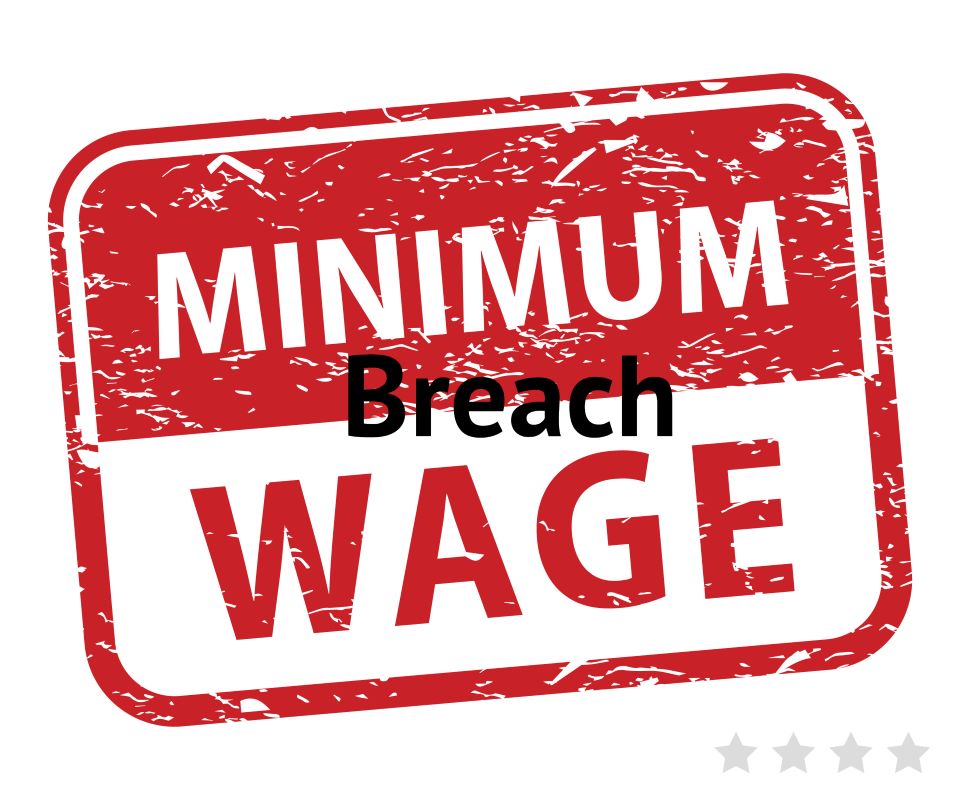23rd August 2021
NMW means well but…

Don’t get me wrong, I have no intentions of knocking the National Minimum Wage (NMW). Its introduction in 1999 revolutionised the thinking behind pay increases and, according to the Low Pay Commission, the lowest paid have seen their pay grow faster than all other workers, since NMW was introduced. Not only that, the NMW has improved wages for workers all the way up the pay scale, with many employers seeking to maintain a ‘differential’ between the minimum rate and those with more experience.
Not for nothing was the NMW voted the most successful policy of the last 30 years by the Political Studies Association in 2010. And the sanctions for breaching NMW regulations are harsh, with employers facing penalties of up to 200% of the total underpayment, capped at £20,000 per worker. But it is perhaps being included on the National Minimum Wage (NMW) naming and shaming list, and the reputational damage which often follows, that employers fear more than the financial penalty.
No employer wants to be seen as short-changing their workers, so it always makes for an interesting read to see who has been included on the list, as well as ringing a warning bell to us all to not be complacent when it comes to the NMW rules.
The latest list was published on 6 August, announcing breaches from 191 businesses between 2011 and 2018 totalling £2.1m and affecting more than 34,000 workers. The employers named were fined £3.2m and have paid back what they owe. The list included some well-known names such as high street retailers The Body Shop, Martin McColl and Pret A Manger, along with football clubs Charlton Athletic, Crewe Alexandra, Oldham Athletic and Sheffield United.
But it is John Lewis which is perhaps a surprise inclusion on the list. Not because they haven’t breached the rules, because they have, but the breach was four years ago, it was an accidental breach in an effort to make life easier for their employees, and John Lewis itself made the breach public at the time as soon as it realised what had happened. That they are named and shamed now, four years after the breach, highlights the importance of knowing exactly what the rules are, and the consequences of not applying the rules correctly.
John Lewis has long been held up as a beacon of good employment practice, indeed it is owned by the employees, whom John Lewis calls partners. The breach arose because John Lewis introduced a form of pay averaging to ensure that those workers whose pay fluctuated, a common occurrence in seasonal professions such as retail, received the same amount each month making it easier for them to budget. This breached NMW rules despite the average minimum hourly pay never being below the national minimum.
John Lewis are not the only employer to fall foul of the rules when adopting a policy they believe to be in the employees’ interest. Iceland Foods reportedly faced a bill for at least £21m of underpaid wages because its Christmas Club, set up to help employees save for the festive season, allegedly broke NMW rules. Under the scheme sums were deducted from participating employees’ wages through salary sacrifice, and kept in a ring-fenced bank account managed by independent trustees, with workers able to withdraw the money whenever they wished. Unfortunately, the deduction took the wages of some workers below the National Minimum Wage, with HMRC estimating there had been an estimated £3.5 million underpayment for each of the six years of the scheme.
Whilst these cases show that not all minimum wage underpayments are intentional, they do make you question the rigidity of the NMW regulations, particularly in relation to salary sacrifice. After all, the main advantage of salary sacrifice (now known as Optional Remuneration Arrangements or OpRA) can be higher take home pay, as employees pay lower National Insurance contributions (NICs). The government uses this advantage to encourage us to do what they want us to do, such as contribute to a workplace pension scheme, yet once again, those who would benefit most from being able to make pension contributions through OpRA, ie. the low paid, are prevented from doing so if the deductions would take their earnings below the NMW.
Since the Iceland case, HMRC has softened its stance slightly, but only to the extent that, since 6 April 2020, employers will no longer face financial penalties, nor be named and shamed, in cases where earnings fall below the NMW due to a salary sacrifice scheme. However, the company will still be required to pay back any arrears and it will still be necessary to comply with the NMW rules.
So I repeat, whilst the National Minimum Wage regulations have good intentions, and I have witnessed first hand the fervour with which HMRC staff defend the NMW regulations, I must question whether they are always working in favour of the lowest paid.
Am I wrong? What do you think?




